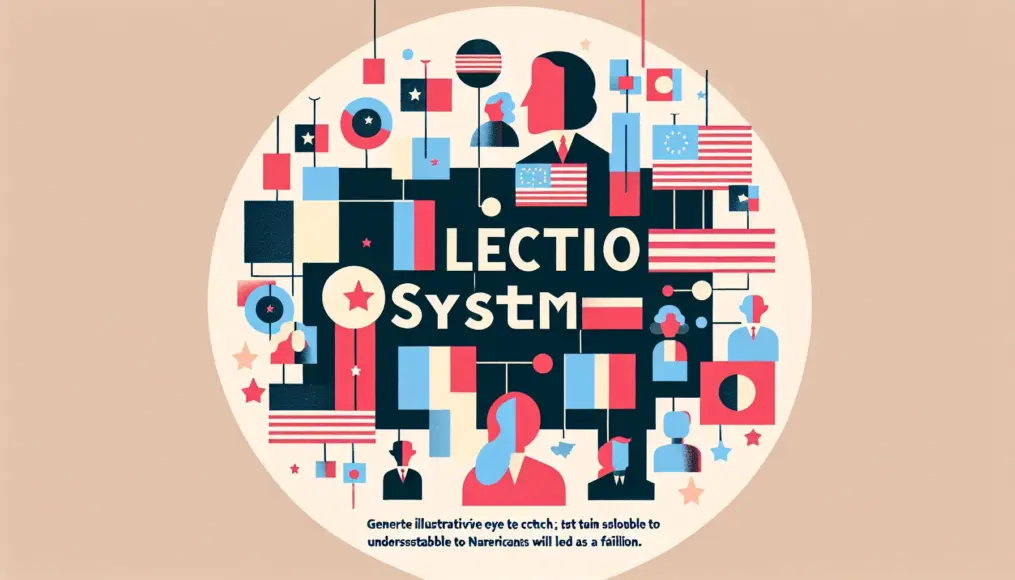Yasukuni Shrine holds a significant place in Japan’s history, but it is also a focal point for various underlying issues. Known as the “Yasukuni Problem,” this topic stirs differing opinions both domestically and internationally, making it a complex challenge to navigate. In this article, we will explore the historical context of Yasukuni Shrine and its implications in modern times. Our aim is to help readers grasp the nuances of this issue and inspire thoughts on potential paths forward.
By reflecting on history, we can gain insights into contemporary Japanese politics and international relations. The Yasukuni Problem is a pressing issue that requires our attention and concerted efforts towards resolution. So, let’s delve into the intricate world of the Yasukuni Problem together.
- An overview of the historical significance of Yasukuni Shrine
- A look at domestic and international perspectives on the modern Yasukuni issue
- Proposals for future solutions and challenges
The Historical Background of Yasukuni Shrine
Yasukuni Shrine holds a unique significance in Japanese history. From its inception, it has served as a place to honor those who sacrificed their lives for the nation. However, over time, its presence has sparked a variety of controversies. Particularly in the context of post-war international relations, discussions surrounding Yasukuni Shrine have intensified, often leading to divided opinions both domestically and abroad. In this section, we’ll delve into the establishment of Yasukuni Shrine, its significance, and its relationship with international affairs in the post-war era.
Establishment and Significance of Yasukuni Shrine
Founded in 1869, Yasukuni Shrine has functioned as a sacred site honoring the spirits of those who fought for Japan. Initially, its purpose was to pay respect to individuals who devoted their lives to the nation. However, as history progressed, Yasukuni became entangled in issues related to the separation of religion and state, alongside historical recognition. The historical context tied to war continues to be a focal point of debate.
The significance of Yasukuni Shrine goes beyond merely commemorating war dead; it also serves as an important venue for reflecting on the nation’s history. As a factor influencing Japanese politics and international relations, the Yasukuni issue remains a topic of considerable interest.
- Yasukuni Shrine was established in 1869
- It has a role in honoring those who sacrificed their lives for the nation
- The historical context surrounding it continues to be a central topic of discussion
Yasukuni Shrine and International Relations Post-War
In the post-war period, Yasukuni Shrine evolved into a significant point of contention in international relations. Particularly in dealings with countries that have vivid memories of war, visits to and events at Yasukuni have often stirred controversy. When Japanese politicians visit the shrine, their actions can carry diplomatic messages, provoking international backlash each time.
Thus, while Yasukuni Shrine is respected as a place for reflecting on Japan’s history, it also presents a sensitive issue in relations with other countries. The Yasukuni issue will likely continue to be an important topic in the context of Japan’s relationships with its neighbors.
- After the war, Yasukuni Shrine became a contentious issue in international relations
- Visits by politicians can serve as diplomatic messages
- It remains a sensitive issue in Japan’s relations with neighboring countries
A Contemporary Perspective on the Yasukuni Issue
The Yasukuni Shrine continues to evoke a range of opinions in modern Japan, largely due to its historical background. The “Yasukuni issue,” in particular, is a complex topic that divides opinions both domestically and internationally, playing a significant role in Japan’s political landscape and international relations. In this section, we will delve into the domestic perceptions surrounding Yasukuni Shrine as well as the criticism and influence it faces from abroad. Our goal is to present this issue in a way that makes it easier for you to understand.
Domestic Opinions on Yasukuni Shrine
Within Japan, there are both supporters and detractors of Yasukuni Shrine. On one hand, many people hold it dear as a place to honor those who lost their lives in war, emphasizing its role in remembering history. For these individuals, Yasukuni Shrine is an essential site for reflecting on Japan’s past, and they consider honoring the spirits of the war dead a significant duty.
Conversely, there is a strong critical stance, particularly from those who view the shrine as a symbol of militarism and grapple with issues surrounding historical recognition. This clash of opinions highlights that the Yasukuni issue is not merely a religious matter but rather reflects the complexities of politics and international relations. The diversity of opinions within Japan will undoubtedly influence future approaches to the Yasukuni issue.
- There are both supportive and opposing views regarding Yasukuni Shrine
- Many believe it is important to honor those who died in battle
- Issues of historical recognition are causing divisions in opinions
Criticism and Influence from Abroad
Internationally, Yasukuni Shrine faces considerable criticism, particularly from nations such as China and South Korea, which share a painful history of war with Japan. Visits to the shrine can often be interpreted as political statements, leading to heightened tensions in international relations. For countries grappling with historical wounds, Yasukuni Shrine serves as a painful reminder of the past.
This criticism poses diplomatic challenges for Japan. The Yasukuni issue extends beyond domestic debate, significantly impacting efforts to achieve international understanding. The meanings attached to Yasukuni Shrine contribute to the divergence of opinions both within Japan and abroad, ensuring that it remains a topic of ongoing interest and discussion.
- There is significant criticism from abroad
- Visits to Yasukuni Shrine can be seen as political messages
- It presents challenges in achieving international understanding
A Contrarian Perspective on the Yasukuni Issue
The Yasukuni issue is an emotional topic for many, sparking a variety of opinions and discussions. However, approaching this matter from a contrarian viewpoint might reveal new insights. In fact, delving into the perspectives surrounding Yasukuni Shrine and uncovering the underlying needs could serve as a crucial step toward resolution. In this section, we will explore hidden needs through a contrarian lens and propose potential solutions to the Yasukuni issue.
Uncovering Hidden Needs
Opinions on the Yasukuni issue are diverse, but within them lie unexpected hidden needs. For instance, there is a call not only to honor the war dead but also to serve as a space for historical education. It’s important to remember that many visitors to Yasukuni Shrine come not just to pay their respects, but also with a desire to understand the past and use that knowledge to inform the future.
Moreover, those who visit Yasukuni are seeking more than just a place for mourning; they aim to form a community that preserves and shares history. By reassessing the role of Yasukuni Shrine in light of these hidden needs, we may foster new empathy and understanding.
- Hidden needs exist within the Yasukuni issue
- There is a demand for a role in historical education, not just honoring the war dead
- Community formation is a crucial element
Proposals for Resolving the Yasukuni Issue
To address the Yasukuni issue, it’s essential to adopt an attitude of respect for diverse opinions. By acknowledging both domestic and international criticisms and promoting dialogue, we can deepen mutual understanding. For example, through events and educational opportunities provided by Yasukuni Shrine, individuals can gain a better grasp of history.
Additionally, if the shrine’s management actively establishes platforms for historical education and dialogue, it would enable visitors to engage more profoundly with history and encourage discussions aimed at the future. Such initiatives could pave a pathway toward resolving the Yasukuni issue.

If you found this article interesting, you might also enjoy “Considering the History and Future Perspectives of the Okinawa Issue.” Gaining a comprehensive understanding of the Okinawa issue can help illuminate the historical context and contemporary social impacts, much like the Yasukuni issue.
- Respecting diverse opinions and promoting dialogue is vital
- Initiatives to establish historical education and dialogue platforms are necessary
- We can indicate new pathways toward resolving the Yasukuni issue
The Future of Yasukuni Shrine and Japanese Politics
The Yasukuni issue is not just a historical concern; it significantly impacts Japan’s future political landscape and international relations. Understanding the role that Yasukuni Shrine will play moving forward, along with the challenges that accompany it, is crucial. In this chapter, we will delve into the efforts being made to address the Yasukuni issue, as well as the relationship between historical awareness and future challenges. Our goal is to present this topic in an accessible way, allowing readers to gain a deeper understanding.
Efforts to Resolve the Yasukuni Issue
To tackle the Yasukuni issue, dialogue among stakeholders is essential. Respecting both domestic and international perspectives and fostering a common understanding is the first step toward resolution. For instance, it’s important to increase opportunities for learning about history through events and educational programs offered by Yasukuni Shrine. Such initiatives provide a valuable platform for people from diverse backgrounds to come together and exchange opinions.
Moreover, when politicians and relevant figures visit Yasukuni Shrine, it’s crucial for them to be aware of the significance of their actions. These visits should not only honor the spirits of the deceased but also reflect on history and convey a forward-looking message. Through these efforts, a clearer pathway toward resolving the Yasukuni issue may emerge.
- Dialogue among stakeholders is vital
- Increase learning opportunities through historical education and events
- Politicians need to be mindful of the significance of their visits
Historical Awareness and Future Challenges
The Yasukuni issue is deeply intertwined with historical awareness. How Japan understands its history and communicates it to future generations is a key challenge ahead. This is especially important in relationships with countries that still carry vivid memories of war; the perspective taken on history becomes a critical factor. Japan must consider how it will engage with other nations, and what role Yasukuni Shrine will play in that context.
There is hope that Yasukuni Shrine will not only serve as a memorial site but also function as a place for historical education. By doing so, it can help society confront history and glean lessons for the future. While the path to resolving the Yasukuni issue may be long, it is important to move forward with hope for the future.
- Historical awareness is closely linked to the Yasukuni issue
- The perspective on history is crucial in relations with other countries
- There is an expectation that Yasukuni Shrine will serve as a place for historical learning
Conclusion
The Yasukuni issue is a complex topic deeply rooted in Japan’s history and politics. Yasukuni Shrine serves as a significant site for commemorating fallen soldiers, and its existence has become a point of contention both domestically and internationally. In this article, we have explored the historical background of Yasukuni Shrine, modern perspectives, and ongoing efforts toward resolution. We have come to recognize just how crucial it is to understand the Yasukuni issue as we look to the future, including the challenges and hopes that lie ahead.
There is a hope that Yasukuni Shrine will not only remain a place of remembrance but also evolve into a site for learning about history. Engaging in dialogue that respects diverse opinions will be key to building a peaceful future. While the Yasukuni issue is not something that can be easily resolved, it is essential for each of us to deepen our understanding and continue to reflect on it.
- The Yasukuni issue is deeply intertwined with Japan’s history and politics.
- Yasukuni Shrine is an important site for honoring fallen soldiers.
- Respecting diverse opinions and promoting dialogue will be crucial for the future.
We value your opinions and encourage collaborative thinking on this topic. Please feel free to share your thoughts and feedback in the comments section below!



Comment